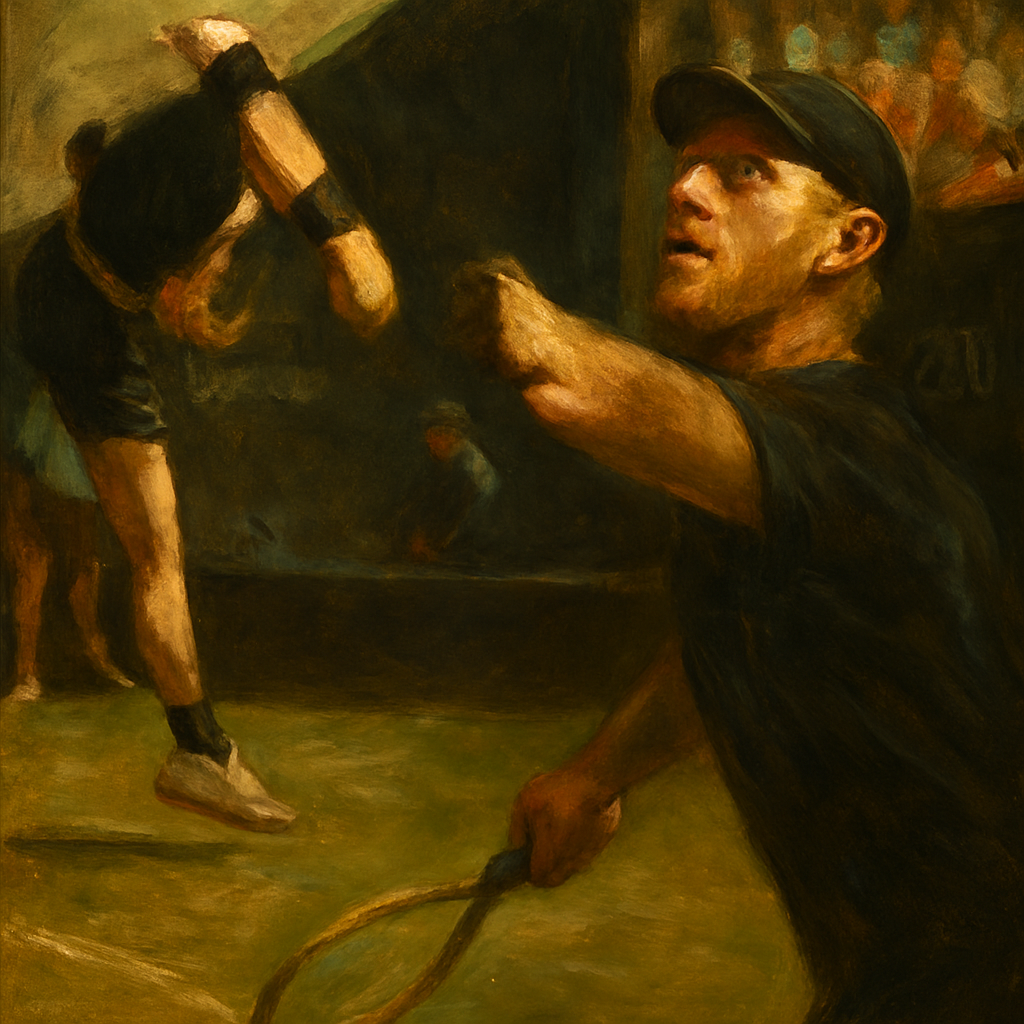EASTBOURNE — Spanish tennis star Alejandro Davidovich Fokina sparked controversy at the Rothesay International in Eastbourne after a heated exchange with the umpire over a code violation for throwing his racket during his match against American Tommy Paul.
The incident occurred during the second set of their quarterfinal clash when Davidovich Fokina, frustrated after losing a crucial point, hurled his racket to the ground. The racket bounced and hit the grass, prompting chair umpire Mohamed Lahyani to issue a warning for unsportsmanlike conduct. The world No. 32 immediately protested, arguing the punishment was unjustified.
The Heated Exchange
Davidovich Fokina, known for his fiery on-court demeanor, engaged in a tense back-and-forth with Lahyani, refusing to accept the warning. "It didn’t break, it didn’t damage anything—why are you giving me a warning?" he argued, gesturing toward the grass where the racket had landed.
Lahyani stood firm, explaining that any act of racket abuse, regardless of whether damage occurred, warranted disciplinary action under ATP rules. The Spaniard continued to dispute the decision, shaking his head and muttering in frustration before eventually resuming play.
Fan and Analyst Reactions
The incident quickly became a talking point among tennis fans and analysts. Some supported the umpire’s strict enforcement of the rules, while others felt Davidovich Fokina’s reaction was understandable given the intensity of the match. Tennis commentator David Law weighed in on social media, writing, "Racket abuse is racket abuse—whether it breaks or not. The rules are clear, but players will always push back when emotions run high."
Key points from the debate included:
- Rule Enforcement: The ATP’s strict stance on equipment abuse, even in minor cases, was highlighted.
- Player Temperament: Davidovich Fokina’s history of emotional outbursts was noted, with some suggesting he needs better composure.
- Umpire Consistency: Questions arose over whether similar incidents in other matches had been penalized equally.
The Aftermath
Despite the distraction, Davidovich Fokina regained focus and fought hard in the match, though he ultimately lost to Paul in three sets (6-3, 6-7(4), 6-4). After the match, he declined to comment further on the incident, only saying, "I was frustrated, but it’s part of the game. I’ll learn from it."
Paul, who advanced to the semifinals, acknowledged the intensity of the moment but downplayed its significance. "These things happen in tennis. We’ve all been there—emotions take over sometimes," he said in his post-match interview.
A Pattern of Controversy
This isn’t the first time Davidovich Fokina has clashed with officials. Earlier this year, he received a point penalty at the Madrid Open for a similar outburst. His passionate but volatile style has drawn both admiration and criticism from the tennis community.
Former British No. 1 Tim Henman, analyzing the match for the BBC, noted, "Alejandro plays with his heart on his sleeve, but he needs to find a balance. The best players channel that energy positively."
Conclusion
The incident at Eastbourne serves as another reminder of the fine line between passion and discipline in professional tennis. While Davidovich Fokina’s fiery nature is part of what makes him an exciting player to watch, his refusal to accept punishment highlights an ongoing challenge for players and officials alike.
As the ATP Tour moves to Wimbledon, all eyes will be on whether the Spaniard can keep his emotions in check on the sport’s biggest stage. For now, the debate over racket abuse rules—and how strictly they should be enforced—continues.

